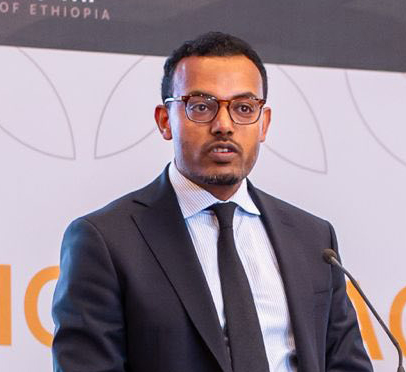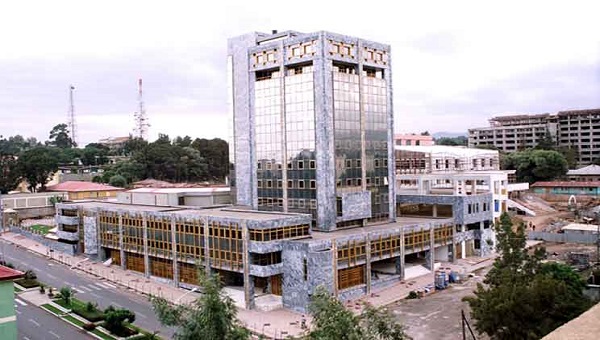
Editorial | Dec 07,2024
The coffee industry, long a symbol of national pride and a vital source of foreign exchange, is undergoing a sweeping regulatory overhaul, stamping out systemic abuse and restoring global trust in exports.
The Ethiopian Coffee & Tea Authority (ECTA) has introduced a slate of new rules under an amended Coffee Marketing & Quality Control law, signalling an assertive shift away from years of lax oversight. The amendment raises financial barriers for new entrants, mandates quality control protocols, and digitises the licensing regime to curb forgery and malpractice. Officials say the measure is overdue and critical to salvaging Ethiopia’s coffee brand abroad.
“We aren't doing this for bureaucracy’s sake,” said Kassahun Geleta, ECTA’s post-production lead. “These are the bare minimums for a healthy and transparent market.”
He stated that the digital system for applications is not yet fully operational, but it will be launched soon.
"People need to understand this is basic and necessary," Kassahun said.
The directive tightens entry into the export business with sharp increases in capital requirements. Individual exporters should now present proof of 15 million Br in a certified bank account and at least a year of verifiable financial activity. Business associations and private limited companies face a 20 million Br threshold and have to demonstrate a more robust financial record. While the changes apply only to new applicants, industry veterans say it is a long-overdue correction.
“There are people who don’t even know they have a license,” said Israel Degefaw of the Ethiopian Coffee Exporters Association.
He describes a regime that allowed paper exporters to divert high-quality beans meant for global markets to the domestic scene, chasing higher local prices and skirting scrutiny. The “export diversion” has ballooned into a corrosive force in the sector. With per capita consumption now at 2.3Kg and local prices surging during seasonal shortages, incentives for illegal diversion are stronger than ever. In 2023/24 alone, 775tns of export-grade coffee, worth 100 million Br, were seized after being rerouted to domestic buyers.
"Honestly, it is a little late," Israel said. "But this is for the country's good."
Determined to stem the tide of forgery and regulatory arbitrage, ECTA is digitising its application system. The new platform promises paperless submissions, QR-coded certification, and enhanced surveillance of exporters and cuppers, the professionals responsible for grading coffee. While not yet fully online, the system is a core pillar of the Authority’s modernisation push. Under the revised law, exporters are required to run certified labs and employ licensed cuppers, each restricted to serving only one exporter to avoid conflicts of interest. New exporters have 12 months to operationalise post-certification or face suspension.
Also banned are shell arrangements, where individuals or entities hold multiple export licenses under different guises. This rule targets market manipulation and seeks to close loopholes that have long enabled fly-by-night operators.
Despite the bold rhetoric and reforms, not all stakeholders are persuaded of the law’s efficacy. Critics argue that the directive skirts deeper structural failings, most notably, financial exclusion and volatile profitability.
Abebe Amelga of Admass Corporate Union, a coffee exporter in Welkite, painted a bleak picture.
“We defaulted last year," he told Fortune. "We can’t get new loans. We couldn’t export, not because of regulations, but because we’re financially locked out.”
His story echoes a wider reality that access to working capital remains elusive for many producers, particularly in the southwestern highlands.
More than 418 licensed exporters and over 5.5 million household growers form the backbone of the coffee economy. Yet, yields remain chronically low (7.5 quintals per hectare) and export volumes remain below potential. Of 800,000tns of annual production, barely half is exported, and even then, only around 300,000tns reached international buyers in 2023/24, generating 1.43 billion dollars. This, though a windfall by historical standards, still fails short of what authorities believe was achievable.
Experts argue that for many exporters, the true value of coffee is not in the coffee itself but in the hard currency it generates. According to Shimeles Araya (PhD), an agro-economist, the real lure lies in using foreign exchange to import goods that command steep margins domestically.
“Coffee exports are sometimes loss-leaders,” Shimeles said. “But with access to forex, traders can bring in electronics or vehicles and make windfall profits.”
This, he warned, created distorted incentives and undermined the sector’s long-term sustainability.
Adugna Debela (PhD), director general of ECTA, has more ambitious goals. He hopes to double exports to 600,000tns and boost average prices a ton from 2,800 dollars to 3,900 dollars. In the 2024/25 season, Ethiopia earned a record 2.65 billion dollars from coffee exports, driven in part by tighter coordination among farmers, exporters, and local authorities. But Adugna is candid about the challenges ahead.
“Without stronger controls, improved traceability, and discipline, we will lose our competitive edge,” he said.
As Shimeles cautioned, well-meaning policies can backfire.
“When the British colonial government in India paid people to kill snakes, locals started breeding them,” he quipped. “The same can happen with policies, if the strategies are wrong.”
PUBLISHED ON
Sep 13,2025 [ VOL
26 , NO
1324]

Editorial | Dec 07,2024

Fortune News | Mar 16,2024

Radar | Jul 20,2025

Fortune News | Jun 26,2021

Radar | Jul 29,2023

Radar | Jun 07,2025

Addis Fortune | Aug 09,2025

Fortune News | Jul 13,2019

Commentaries | Jan 26,2019

Delicate Number | Jun 22,2024

Dec 22 , 2024 . By TIZITA SHEWAFERAW
Charged with transforming colossal state-owned enterprises into modern and competitiv...

Aug 18 , 2024 . By AKSAH ITALO
Although predictable Yonas Zerihun's job in the ride-hailing service is not immune to...

Jul 28 , 2024 . By TIZITA SHEWAFERAW
Unhabitual, perhaps too many, Samuel Gebreyohannes, 38, used to occasionally enjoy a couple of beers at breakfast. However, he recently swit...

Jul 13 , 2024 . By AKSAH ITALO
Investors who rely on tractors, trucks, and field vehicles for commuting, transporting commodities, and f...

Oct 18 , 2025
The political establishment, notably the ruling party and its top brass, has become p...

Oct 11 , 2025
Ladislas Farago, a roving Associated Press (AP) correspondent, arrived in Ethiopia in...

Oct 4 , 2025
Eyob Tekalegn (PhD) had been in the Governor's chair for only weeks when, on Septembe...

Sep 27 , 2025
Four years into an experiment with “shock therapy” in education, the national moo...